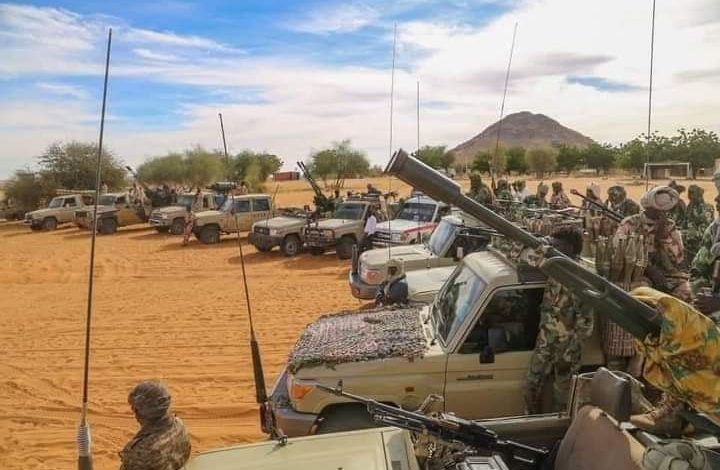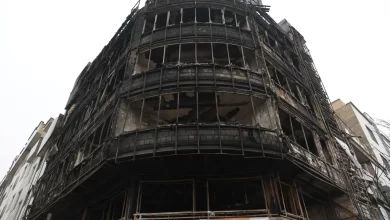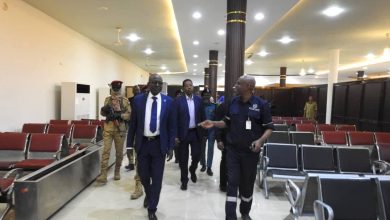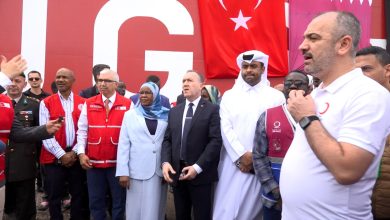
Sudan Events – Follow-up
The Joint Force, associated with the armed movements, revealed new details about the full liberation of the Wadi Hor region and the liberation of the Zarq (Hea Me) military base and its airbase.
The official spokesperson for the Joint Force of the armed movements, Lieutenant Colonel Ahmed Hussein Mustafa, stated in a press release that the forces achieved a major strategic victory by liberating the entire Wadi Hor region, culminating in the liberation of the Zarq (Hea Me) military base and its airbase. He revealed that the militia’s fortifications, as well as regional and international mercenaries, were defeated, and these strategic areas were fully cleared.
He explained that the battles started on Saturday morning with the liberation of Bir Merki base, the military airfield, followed by control over Bir Shella, Donki Major, Bir Jibril, Donki Khayem, and ultimately the major Zarq (Hea Me) military base.
Lieutenant Colonel Ahmed confirmed that the militia fled south, leaving behind no less than 700 mercenaries from the RSF dead or wounded, with many being captured. Over 122 military vehicles were destroyed, and a significant number of intact vehicles, armed with various weapons, were seized, along with five military bases, including two military airports. The remaining strategic gains in terms of bases and airports are currently being examined.
The spokesperson mentioned that these military bases were crucial for smuggling weapons and mercenaries from neighboring countries into Sudan. They were also used to secure fuel and weapons to support the RSF militia. The bases had become a starting point for barbaric operations against civilians in areas like South Al-Fasher, Zamzam Camp, Al-Jazeera villages, and Dar Zaghawa. These bases enabled the militia to commit genocide and displace millions, and Ahmed described the victory as a fatal blow to their operations. The militia no longer has a presence in its historical bases in the Wadi Hor region.
The statement accused the militia of seizing vast lands belonging to indigenous people in the Zarq and Wadi Hor areas to establish settlements for themselves. Over 140,000 people were forcibly displaced in 2017, and settlements were built for the families of RSF leaders on their lands, with Jumaa Daglo being appointed as the head of the area against the will of the local people.
The spokesperson added that the militia took advantage of the strategic location of the Zarq region near the Sudanese-Libyan-Chadian border triangle to build the largest military base in the Sahara Desert. From there, they extorted the European Union and the international community with the issue of illegal migration, obtaining financial and economic support. Zarq settlement and its military base became the main stronghold of the Janjaweed militia and the stronghold of the Daglo family’s leadership.
Ahmed also mentioned that the militia’s leader himself made his first public statement from this base, threatening the Sudanese people and hijacking the state. He emphasized that all the military crowds and weapons transported to the capital in the months leading up to the failed April 15 coup attempt originated from the Zarq military base.
The statement concluded with: “We tell our people in Darfur, Abu Zareekah, Al-Fasher, Zamzam Camp, Al-Jazeera villages, Green Cities, Greater Kordofan, and Khartoum: patience, for soon your Joint Forces and the Sudanese Army will end the militia’s tyranny.”
Ahmed called on the international community to take its moral and humanitarian responsibilities by supporting the Sudanese people against the RSF and demanded the condemnation of the militia’s crimes, which amount to genocide. He stressed the need to exert pressure on the United Arab Emirates to stop any financial or logistical support to this militia, which continues to commit heinous crimes against humanity.



